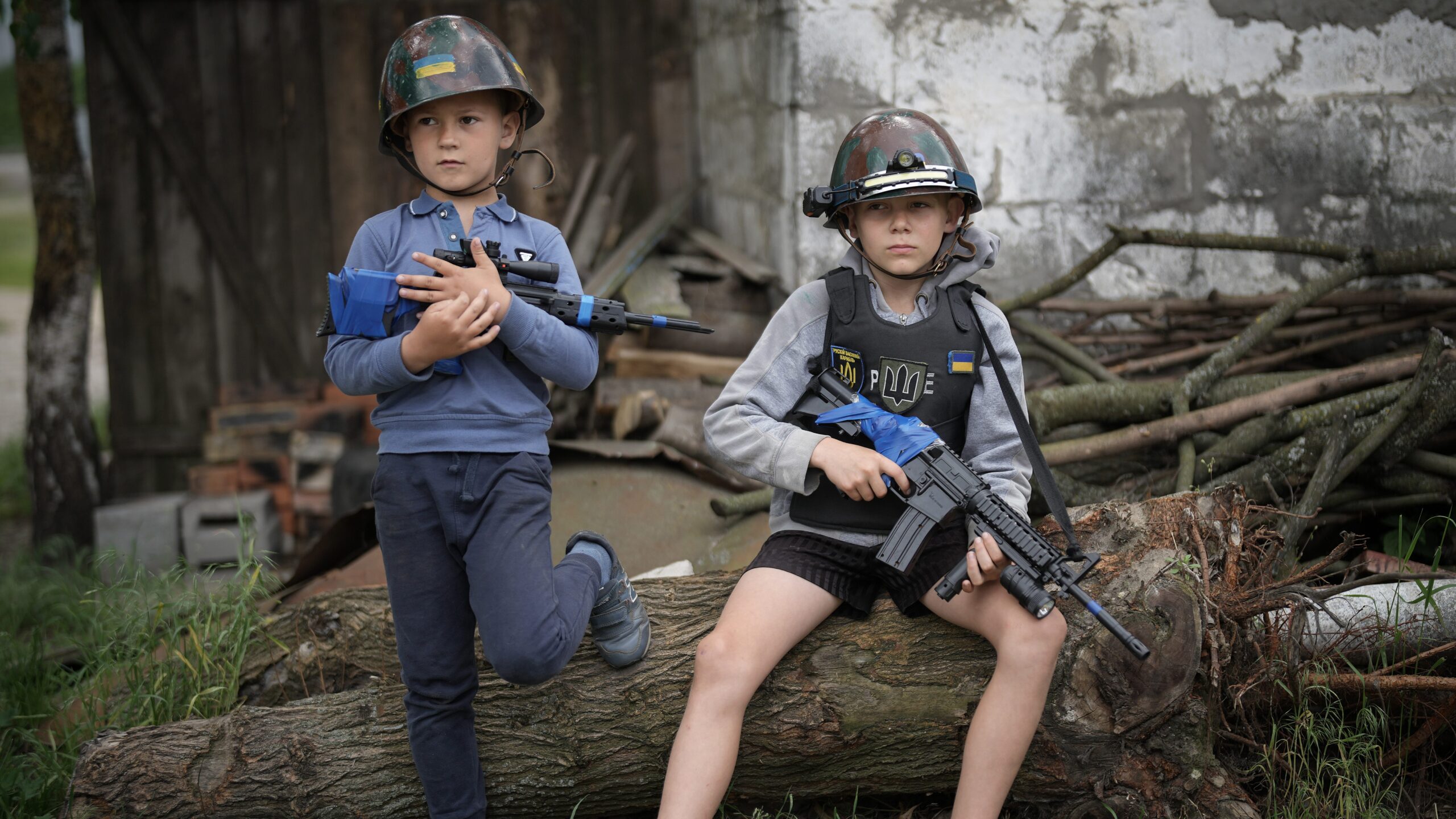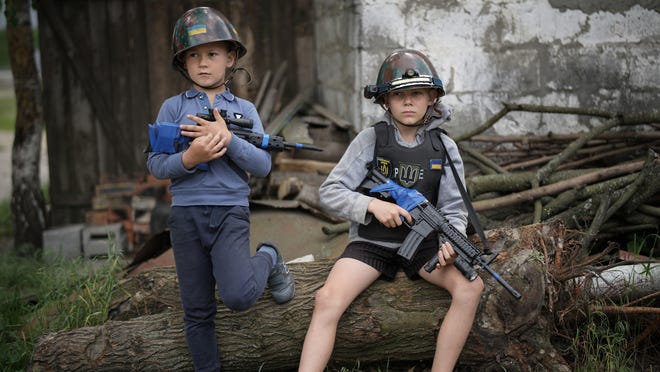The Biden administration will send another $1 billion in ammunition, weapons and vehicles to Ukraine, the Pentagon announced Monday.
The latest military aid package includes ammunition for the High Mobility Artillery Rocket Systems, or HIMARS, that Ukraine has used to destroy Russian ammunition depots and command posts dozens of miles behind the front line in eastern Ukraine. Defense officials have credited the weapon and stiff Ukrainian resolve with slowing the Russian advance there. The package includes conventional artillery ammunition, armored ambulances and anti-tank weapons.
The package announced Monday is the largest single shipment in 18 sent since August 2021 under authority of President Joe Biden, said Pentagon spokesman Todd Breasseale. The Biden administration has provided Ukraine with $9.8 billion in military aid. Since 2014, the United States has spent $11.8 billion on security assistance.
USA TODAY ON TELEGRAM: Join our Russia-Ukraine war channel to receive updates
Latest developments:
►The Ukraine military said it destroyed a Russian ammunition depot in the Kharkiv region and shot down a cruise missile near Odesa on Monday.
►Russian combat losses include 42,340 killed or wounded troops, 1,811 tanks; 4,070 armored vehicles, the Ukraine military estimated. Neither combatant releases tallies for its own losses.
Melitopol would be ‘reunified’ with Russia under referendum
The Russian-appointed leader of Ukraine’s occupied Zaporozhye region on Monday signed an order to hold a referendum on “reunification” with Russia that could take place as soon as next month. The announcement from Evgeny Balitsky came one day after the city’s mayor, Ivan Fedorov, claimed used U.S.-supplied HIMARS rockets to strike Russian forces in the area, killing more than 100.
“I am signing an order to the Central Election Commission to start preparations for a referendum,” Evgeny Balitsky said at a public forum in the southeastern city of Melitopol. “We are Together with Russia.”
A member the Zaporozhye Region’s military-civilian administration, Vladimir Rogov, claimed that the residents of the Zaporozhye Region and Russia were one people.
“Time is ripe to restore historical justice,” Rogov said. “We are confident that as a member of Russia the Zaporozhe Region will be protected from any encroachments.”
Moscow, Kyiv blame each other for shelling at nuclear plant
“Suicidal” shelling of Europe’s largest nuclear plant must be halted and international inspectors granted access to ensure its safe operation, U.N. Secretary-General António Guterres said Monday. Moscow and Kyiv blamed each other for a series of recent rocket attacks at Zaporizhzhia Nuclear Power Station that the International Atomic Energy Agency said has created “the very real risk of a nuclear disaster.”
Ukraine’s military intelligence chief, Andriy Yusov, said his organization had received credible information from several sources that Russian forces have planted explosives at the Zaporizhzhia plant to head off an expected Ukrainian counteroffensive in the region. The Ukraine power company Energoatom quoted a Russian general as saying “the station will be either Russian or nobody’s.”
Ukraine President Volodymyr Zelenskyy accused Russia of the rocket attacks. The Russian embassy in Washington issued a statement blaming Ukraine for the shelling, claiming a “disinformation campaign” in the U.S. media is falsely blaming Russian forces.
Embargo eased, Ukrainian grain shipment is first to reach destination
A cargo ship carrying 12,000 tons of Ukrainian corn arrived Monday in Turkey, the first vessel to arrive at its destination under a deal that eased Russia’s tight blockade of Ukraine ports.
The Turkey-flagged Polarnet docked at Derince port in the Gulf of Izmit, three days after setting off from Chornomorsk. The first ship to depart Ukraine, the Sierra Leone-flagged Razoni, left on Aug. 1 but had not reached its destination in Lebanon and was anchored off Turkey’s southern coast, according to the Marine Traffic website.
The ships are sailing under a deal to unblock grain supplies and stave off a potential global food crisis. Ukraine Foreign Minister Dmytro Kuleba said the first ships arrival “sends a message of hope to every family in the Middle East, Africa, and Asia: Ukraine won’t abandon you. If Russia sticks to its obligations, the “grain corridor” will keep maintaining global food security.”
Six more ships carrying agricultural cargo have received authorization to leave Ukraine’s Black Sea ports, carrying more than 236,000 tons of grain. Ukraine has 20 million tons of grain sitting in silos.
Battered infrastructure could lead to humanitarian crisis
The eastern Ukrainian city of Sloviansk has no running water because of unrelenting bombing so residents must fill bottles by hand at public pumps throughout the city. The city’s remaining population has adapted to this new way of life. But local officials warn that the coming of winter could set the stage for a humanitarian crisis. Most of the eastern Donetsk region is without gas for heating, and public wells and municipal water pipes are likely to freeze in winter.
Lyubov Mahlii, 76, collects five gallons of water twice a day from a public tank near her apartment, dragging the plastic bottles up four flights of stairs.
“When there are bombings and sirens, we keep carrying it,” she said . “It’s a great risk for us, but what can we do?”
Graham, Blumenthal urge Biden to declare Russia a terrorism sponsor
At least one prominent senator from each party is pushing the Biden administration to declare Russia a state sponsor of terrorism over its invasion of Ukraine, and they’re jointly taking their case to the airwaves.
Democrat Richard Blumenthal of Connecticut and Republican Lindsey Graham of South Carolina, both with more than a decade in the Senate, told CNN on Sunday that if President Joe Biden doesn’t get behind the designation, they would work toward getting Congress to pass a bill issuing one. Typically such designations are made by the State Department.
“I hope the president will decide to adopt this stance voluntarily, and he hasn’t taken it off the table,” Blumenthal said.
Graham, who served in the Senate with Biden, was more pointed in trying to coax the president to put more pressure on Russia by adding it to the USA’s current list of state sponsors of terrorism, which includes Iran, North Korea, Syria and Cuba. Inclusion on the list would trigger four categories of sanctions.
“Whether or not we have to do legislation to make it happen – we’re willing to,” Graham said. “I am urging the administration to act now.”
Russia has issued warning against terror designation
Russian Foreign Ministry spokeswoman Maria Zakharova, who has called the notion of designating her country a sponsor of terrorism “idiotic” and “naive,” threatened a break in diplomatic relations between the countries if the U.S. made such a decision.
“Washington risks finally crossing the point of no return – with all the ensuing consequences,” she said last week. “This should be well understood in Washington.”
The State Department says four main categories of sanctions result from a state sponsor terror designation. They include restrictions on U.S. foreign assistance, a ban on defense exports and sales, tighter controls over exports of “dual use items” items with military and other uses and miscellaneous financial and other restrictions.





